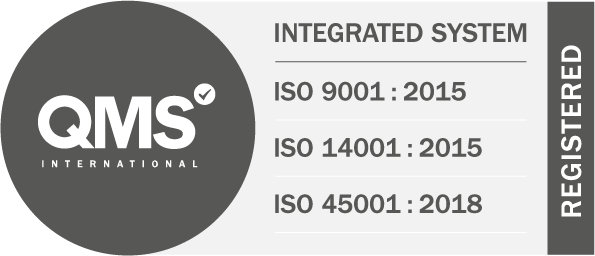10 questions to ask before you switch to EVs
Read our guide to the most important questions you need to consider before moving from fossil-fuelled vehicles to zero-emission transport
Demand for electric vehicles is rising rapidly in the UK as buyers recognise the benefits of switching to zero emission transport.
Alternatively-fuelled vehicles have accounted for more new car sales than diesels during this year, while a series of major orders for electric vans have been announced by fleets.
In some major fleets, one in 10 vans used are now electric. Is now the time to switch to electric vehicles?
To help you decide, consider these 10 key questions.
1. What is my mileage profile?
A cornerstone of any electric vehicle strategy is understanding your mileage profile. Once you have established how far vehicles travel each day and where they go, this can be matched against the capabilities and range of electric vehicles. You can also review where you might see the most demand for charging during the day. Reflex Vehicle Hire vehicles are already fitted with telematics systems as part of the Driive with Reflex modular safety service, which can provide detailed data about vehicle movements to help any transition to electric vehicles.
2. Where will vehicles charge?
Vehicle charging for electric vehicles is more frequent than petrol or diesel equivalents, but it does not have to be disruptive. Companies can use ‘pit stops’ to rapid charge vehicles for short periods of time to add the mileage needed in just a few minutes. Compare your fleet profile to charging locations to identify any potential issues. If you are installing chargers, review installation and running costs. Confirm KPIs with suppliers to ensure any charging points you use are always operational and that fees are competitive.
3. Will I need any power grid upgrades?
If you have a back-to-base fleet where vehicles are parked overnight, then you will need to review whether this will require any upgrades to your power supply when they are all charging. Power companies are working with larger fleets on smart grid systems that allow them to efficiently charge large numbers of vehicles overnight by linking charging capacity to when vehicles will next be required. Alternatively, will employees need chargers installed at home? Before making any significant strategic decisions, consult your electricity provider.
4. Are drivers prepared?
Drivers are the critical element of a successful EV strategy, as they will be using the vehicles each day. Change will require some education and training, because driving an electric vehicle is likely to be different to what they are used to. Firstly, there will not be any gears, so drivers will need to get used to two pedal driving. They will also need to understand how driving style affects range and how vehicles recover energy while slowing down. They must also embed charging stops into their daily routine to avoid breakdowns, especially when it comes to remembering to plug in vehicles at the end of the day.
5. How will my incident management strategy change?
It can take longer to recover electric and plug-in hybrid vehicles following an incident because of safety procedures around high-voltage electrical components, especially in the case of a crash. Also, towing electric vehicles can be difficult if they cannot be put into neutral. These issues can turn a seemingly straightforward recovery into a full day’s operation. In addition to fleets making sure suppliers are fully prepared, the whole issue can be avoided with effective risk management, which could prevent incidents happening in the first place. Reflex Vehicle Hire’s safety-first approach provides customers with the tools they need to effectively monitor and manage vehicles and drivers to keep incidents to a minimum.
6. How will service schedules change?
One of the benefits of electric vehicles is lower maintenance requirements. If they are driven efficiently, the brake pads may last for the full fleet life of the vehicle, while there are no oil or filter changes needed. However, regular safety checks will be important and vehicles will still require tyre changes or new windscreens from time to time. Therefore, it is important to check with suppliers about any restrictions you may face, including whether your current garage is capable of handling electric vehicles. This will avoid any unexpected off-road time after you make the switch.
7. Will electric vehicles meet my requirements?
Although there is a growing range of electric vehicles, it is worth establishing whether these vehicles meet your requirements, particularly when it comes to commercial vehicles. For example, do you need towing capability, or will vehicles be travelling off-road? This can reduce the growing number of vehicles available that will be suitable for your needs.
8. How do wholelife costs compare?
Running costs will be a key factor in your decision, so it is important to consider how your budgets will be affected. Take a long-term view, as the initial costs may be higher, but experts now estimate that EV wholelife costs are reaching parity with equivalent petrol or diesel models. In addition to acquisition or leasing costs, compare elements such as insurance, tax, servicing, grants and even fees for access to low-emission zones.
9. Am I ready?
Introducing an electric vehicle fleet will require new skills and knowledge. To understand the challenges and changes ahead, you can source formal training from industry associations or simply seek advice from fleets that have already switched to electric motoring.
10. Is the board on board?
Boardroom and management support are critical to driving any change within a business. Make sure managers understand why change is happening, including the government’s plans to move away from fossil-fuelled transport. Securing boardroom support will be crucial to overcoming any challenges and delivering a successful project.
Reflex Vehicle Hire has an extensive fleet of alternatively-fuelled vehicles available. Visit our Vehicle Selection page for details.
You can also speak to one of our sales team for advice and information on your future vehicle strategy. Visit our Contact Us page.
Share to:
Find out more
Find out how Reflex Vehicle Hire can help your company.
Call 0330 460 9913 or visit our contact us page.








@2x.png)

